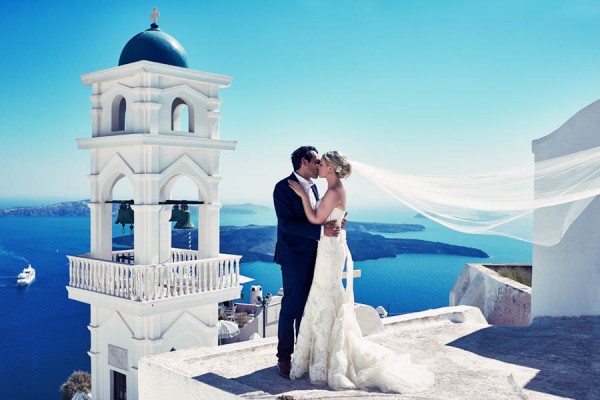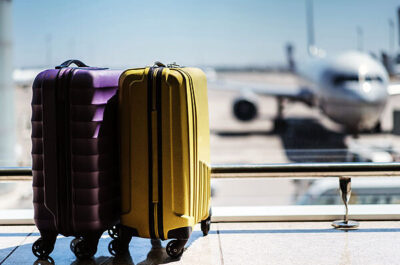Bankrate consulted nine wedding experts and found that 7 out of 9 say that it’s perfectly acceptable to decline a wedding invitation for financial reasons.
NEW YORK, NY – Nearly 1-in-5 Americans have declined a wedding invitation because they can’t afford to go, according to a new study by Bankrate.com. Further, 30% of those who declined, say their relationship with the marrying couple has been negatively impacted.
“Not only are weddings expensive for a couple to plan, they can be a budget-buster for guests, as well. In fact, according to a separate 2018 Bankrate survey, Americans attending a wedding spent an average of $628 on the wedding and associated pre-parties for close friends and family,” said Bankrate analyst, Kelly Anne Smith. “A person should not risk going into debt in order to celebrate the occasion with friends or family.”
Other experts agree! Bankrate consulted nine wedding experts and found that 7 out of 9 say that it’s perfectly acceptable to decline a wedding invitation for financial reasons. However, many caution that it’s how one declines that could be a factor in maintaining a good relationship with the betrothed. One thing the experts unanimously agree on: always send a gift, even if you don’t attend.
Contrary to expert opinion, 25% of Americans would not send a gift if they don’t attend a wedding. Of those who still plan to send a gift, 57% say they would send the same gift as if they attended the event and 17% say they would give less of a gift. The experts were also mixed, with 6 experts saying invitees should send the same gift as if they attended and 3 stating that it’s OK to give less of a gift if the invitation is declined.
Even if respondents choose to attend the wedding, there are many factors that may influence them to spend less on the wedding gift. More than half (57%) of Americans think it’s appropriate to reduce the cost of a gift based on the relationship with the marrying couple, the most popular response by both Americans and the expert panel. Other common reasons for giving less of a gift – that most of the experts agree with, as well – are already having spent money on an engagement or shower gift (33%), spending money on travel expenses to get to the wedding (30%) and incurring expenses as part of the bridal party (21%).
Americans do cite reasons for reducing a wedding gift that the experts don’t necessarily agree with, however, such as if the couple has already established a home together (28%), if the wedding is less-formal (14%) and if the marrying couple did not give them a large gift for their wedding (13%). All three scenarios garnered zero responses from the expert panel as a reason to give less. The second most popular reason Americans cite for potentially skimping on the gift are if it’s not the first marriage for the bride and/or groom (37%), which only 1 of the 9 experts thought was appropriate.
Possibly due to the expense of throwing a wedding, cash has become a desired gift item of many couples. Sometimes frowned upon in some circles, gifting cash or a check is seen as an appropriate option by 88% of Americans and all nine of our experts.
Another popular wedding trend that might stress out budget-conscious Americans are destination weddings. More than half of respondents (56%) think it’s in poor taste for a couple to plan a destination wedding where all guests will incur travel expenses to attend. All experts surveyed agree that this can put an unnecessary financial strain on attendees and marrying couples should not have the expectation that all their close friends and family will attend.
Of course, everyone’s financial situation is different, but how much is too much for wedding couples to expect their bridal party to spend on their wedding (including attire, travel gifts and related festivities such a bridal shower or bachelor / bachelorette parties)? According to everyday Americans, the most popular response of what is considered too much is $500 to less than $1,000 (28%). Less than $250 (27%) came in a close second. Our experts skewed a bit higher, with the most popular answer being a tie between $1,000 to less than $2,000 (3 in 9 experts) and $2,000 to less than $5,000 (3 in 9 experts).
The expert panel includes: Anne Chertoff – Beaumont Etiquette, Kate Donovan – Style Director at BRIDES Magazine, Lauren Kay – Deputy Editor at The Knot, Mister Manners Thomas P. Farley – America’s Trusted Etiquette Expert, Mariam Naficy – Founder and CEO of Minted, Carrie Schwab – Editor-in-Chief and General Manager, Junebug Weddings, Jennifer Spector – Director of Brand at Zola, Elaine Swann – Etiquette Expert & Founder of The Swann School of Protocol and Jeffra Trumpower – Creative Director, WeddingWire.
The study was conducted online in Ipsos' Omnibus using the web-enabled “KnowledgePanel,” a probability-based panel designed to be representative of the US general population, not just the online population. The sample consists of 1,000 nationally representative interviews, conducted between February 22 – February 24, 2019 among adults aged 18+. The margin of error for the full sample is +/-3 percentage points.
Vicky is the co-founder of TravelDailyNews Media Network where she is the Editor-in Chief. She is also responsible for the daily operation and the financial policy. She holds a Bachelor's degree in Tourism Business Administration from the Technical University of Athens and a Master in Business Administration (MBA) from the University of Wales.
She has many years of both academic and industrial experience within the travel industry. She has written/edited numerous articles in various tourism magazines.











































































































































































